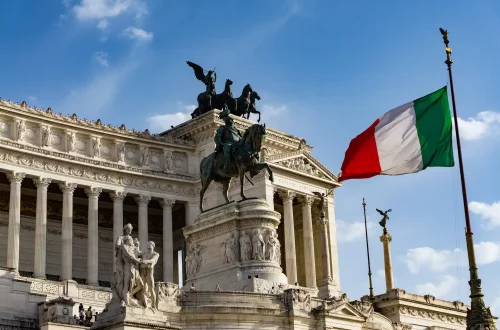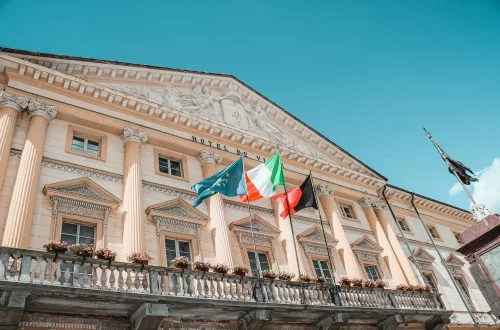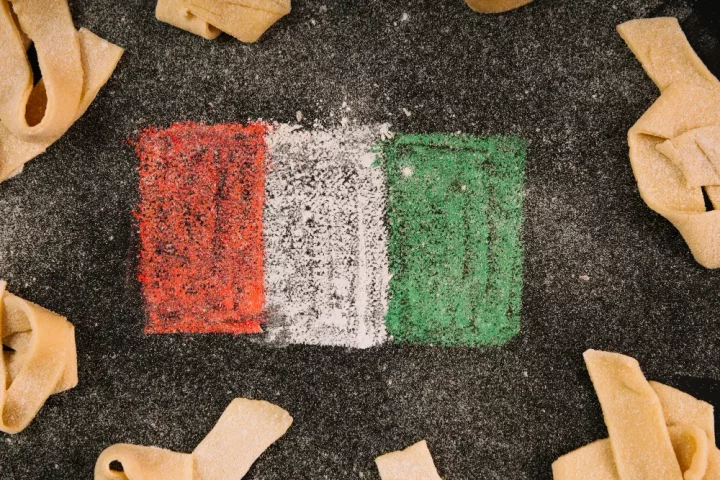The history of Italian surnames is as rich and diverse as the country’s culture and geography. The roots of these names can be traced back to ancient Roman naming conventions, where individuals often had three names: a given name (praenomen), a clan name (nomen), and a family name (cognomen). This system provided a foundation for the development of more complex surname structures in medieval times.
Cultural factors significantly influenced the development of Italian surnames. Patronymic and matronymic origins were common, where a person’s surname was derived from the name of a parent, typically the father (e.g., Di Giovanni, meaning “son of Giovanni”). Occupational names, such as Ferrari (blacksmith) or Pescatore (fisherman), highlighted the profession of the family.
Additionally, geographic and topographic names identified where a person or their family came from, like Montagna (mountain) or Lago (lake). These naming conventions were not only practical but also imbued with cultural and historical significance, reflecting the lives and identities of the individuals and communities they represented.
Regional influence on Italian surnames
In Northern Italy, surnames often reflect the region’s historical and cultural influences. For instance, surnames like Rossi, which means “red-haired,” and Bianchi, meaning “white” or “fair-haired,” are common and were often used to describe physical traits.
The industrial and agricultural history of the north is also evident in names like Conti (count) and Colombo (dove), which may have indicated noble lineage or trade associations. The cultural diversity of Northern Italy, with its blend of Germanic and Latin influences, is mirrored in these varied and evocative surnames.
Southern Italy, on the other hand, offers a different set of surnames shaped by its unique history and cultural heritage. Names like Esposito, which means “exposed” or “abandoned,” often reflect historical practices and societal norms. The influence of Greek and other eastern invaders is evident in surnames such as Greco (Greek) and Gallo (Gaul).
Central Italy, including regions like Tuscany and Lazio, is known for surnames that often indicate the family’s place of origin or a notable ancestor, such as Toscani (from Tuscany) or Di Lorenzo (son of Lorenzo). On the islands of Sicily and Sardinia, the diversity of rulers and the mixing of cultures have led to the development of unique surnames like Caruso (boy) in Sicily and Piras (pear tree) in Sardinia.
Take advantage of specialized assistance to secure your passport for a borderless future.
Most common surnames in Italy
Italian surnames carry deep historical and cultural significance, each telling a story of origins, occupations, and personal characteristics. Among the millions of surnames found in Italy, a few stand out due to their frequency and widespread use across the country.
Here is a closer look at the ten most common Italian surnames, each with its own unique background and meaning.
- Rossi – With 347,288 individuals bearing this surname, Rossi is the most common surname in Italy. The name, meaning “red,” likely referred to someone with red hair or a ruddy complexion. It is found in nearly every region, showcasing its widespread acceptance and use.
- Russo – The surname Russo, carried by 220,472 people, also means “red” in southern dialects. This similarity to Rossi demonstrates regional linguistic variations and highlights the common practice of using physical traits to distinguish individuals.
- Ferrari – Ferrari, held by 196,529 individuals, is derived from “ferraro,” meaning blacksmith. This occupational surname reflects the importance of the blacksmith’s trade in historical Italian society, a profession central to community life.
- Esposito – This surname, borne by 155,359 people, originally meant “exposed” or “abandoned.” It was commonly given to foundlings in Naples, reflecting a societal practice of naming abandoned children, often in reference to their circumstances.
- Colombo – 133,381 individuals share the surname Colombo, which means “dove.” This name might have religious or symbolic significance, potentially referencing peace or the Holy Spirit.
- Bianchi – Bianchi, with 133,380 bearers, means “white” or “fair-haired.” Like Rossi, it highlights the use of physical characteristics in surname creation and is another example of how personal appearance influenced Italian naming conventions.
- Romano – Romano, held by 116,971 individuals, denotes someone from Rome. This geographical surname reflects the significance of origin in Italian naming practices.
- Ricci – Ricci, a name borne by 92,667 people, means “curly.” Again, this surname illustrates how personal traits, such as hair type, were commonly used to create identifiers in historical Italian communities.
- Gallo – The surname Gallo, held by 89,904 individuals, means “rooster” or “Gaul.” It can denote either a symbolic representation or a geographical origin, showcasing the multifaceted nature of surname meanings in Italy.
- Dal – With 87,335 bearers, the surname Dal is particularly interesting as it often forms part of a compound surname (e.g., Dal Santo). It highlights the practice of prefixing surnames to denote origin or affiliation.
These ten surnames not only reveal common naming practices and regional influences but also provide a fascinating glimpse into Italy’s rich historical and cultural tapestry. Each name encapsulates a blend of personal identity, societal role, and geographical significance, painting a vivid picture of the diverse heritage of the Italian people.
Take advantage of specialized assistance to secure your passport for a borderless future.
Genealogical importance of Italian surnames
For those seeking Italian citizenship through heritage, surnames serve as an important link between generations, helping to trace ancestral connections. However, it is essential to understand that citizenship eligibility is not determined solely by a surname; applicants must provide documented proof of lineage and legal requirements to qualify.
Genealogical research techniques frequently involve examining records of births, marriages, and deaths, with surnames acting as the key connection. Resources like church registers, civil records, and immigration documents are critical in this endeavor.
Understanding one’s surname can also foster a deeper connection to Italian cultural identity. For many, discovering the origins and meanings of their family names can be a personal journey, revealing stories of migration, occupation, and regional affiliation.
When did Italians immigrate? A timeline of Italian migration
Differences in linguistic variants of surnames
Italian surnames exhibit a fascinating array of linguistic variants, influenced by regional dialects and migration patterns. In various parts of Italy, the same surname might have different forms. For example, a name like “Rossi” in the north might appear as “Russo” in the south, reflecting regional dialects and linguistic preferences. These variations often provide clues about the geographic origins of a family and the historical linguistic landscape of Italy.
When Italians migrated abroad, especially to countries like the United States, their surnames often underwent further transformations. Names were sometimes altered to fit into the phonetic systems of their new homes or simplified to ease integration.
For instance, the surname “Di Giovanni” might become “DeJohn” or simply “John” in English-speaking countries. Such adaptations highlight the dynamic nature of surnames and their ability to evolve with cultural and linguistic shifts.
Understanding the origins and significance of Italian surnames offers invaluable insights into personal heritage and cultural history. For those interested in exploring their family roots, professional genealogical services can provide comprehensive support, helping to navigate the complexities of Italian records and uncovering hidden stories.
These services not only aid in the technical aspects of research but also enrich the emotional and cultural connection to one’s ancestry. Additionally, acquiring dual citizenship carries numerous benefits, both personal and cultural. It provides legal recognition of one’s heritage, access to a broader range of opportunities, and a deepened sense of identity and belonging.
Embracing and understanding your Italian surname can be the first step in this rewarding journey, bridging past and present, and connecting you more closely to the rich tapestry of Italian history and culture.






